Introduction
Are Pigeons Good Luck: Pigeons, often regarded as the ubiquitous urban birds, have long been associated with notions of good luck in various cultures around the world. These seemingly ordinary birds, with their cooing calls and gentle demeanor, have found a special place in the collective consciousness of people, transcending their role as mere avian inhabitants of our cities. The belief in pigeons as symbols of good fortune is rooted in both ancient traditions and contemporary superstitions, and this mystical connection between pigeons and luck continues to captivate and intrigue people from diverse backgrounds.
The fascinating history and cultural significance of pigeons as harbingers of good luck, uncovering the enduring charm and symbolism that these birds carry with them in our lives. Throughout history, pigeons have held a multifaceted role in human society, earning them a unique status as both pets and symbols of luck. Their association with good fortune can be traced back to various cultures, where pigeons have been revered for their beauty, loyalty, and their connection to celestial and spiritual realms. In ancient times, pigeons were considered sacred creatures by several civilizations.
In ancient Egypt, they were associated with the goddess Hathor, who represented love, motherhood, and music. The ancient Greeks and Romans believed that pigeons were messengers of the gods, carrying divine messages and omens of good luck. Even in Christian iconography, pigeons have been depicted as symbols of the Holy Spirit and divine guidance. Pigeons significance as bringers of luck also extends to more recent times. During World War I and II, messenger pigeons played a crucial role in delivering life-saving messages to soldiers, fostering a deep sense of admiration and reliance on these birds.
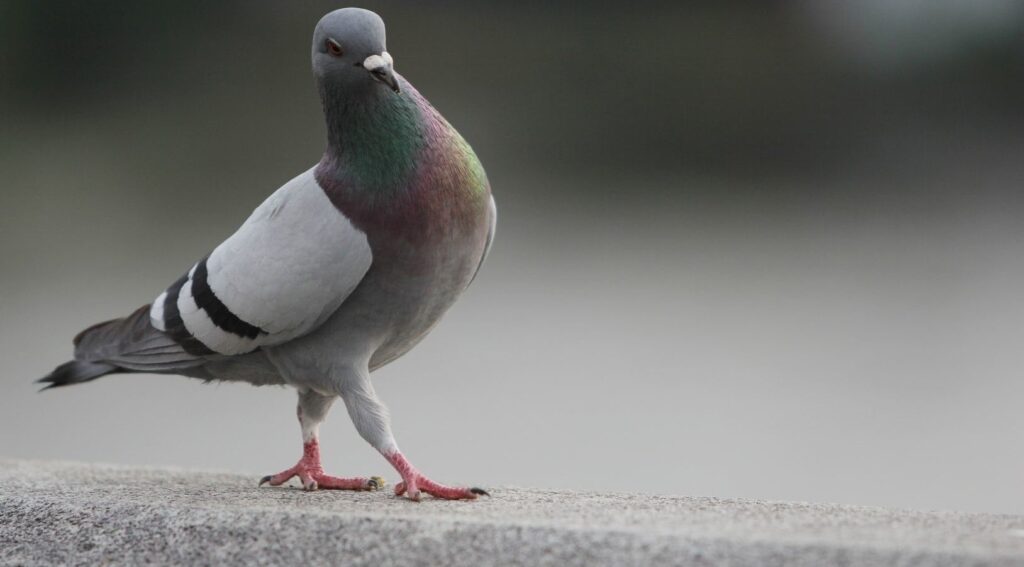
Are pigeons lucky or not?
Pigeons are regarded to be worshippers of the goddess Lakshmi in accordance with religious beliefs. As the pigeons come home, it is said that it turns bad luck into good luck. The home in which they live is always filled with joy and harmony. Hence, it is advised that their nest should never be destroyed.
In some cultures, pigeons are indeed considered lucky symbols. Their historical connections to divinity, as messengers of gods and carriers of spiritual messages, have imbued them with positive connotations. For instance, ancient Greeks and Romans believed that pigeons were messengers from the heavens, and this association with the divine contributed to their reputation as bearers of good fortune.
Conversely, in other cultures, pigeons may not hold the same auspicious status. In urban settings, they are often seen as common and unremarkable birds, sometimes even nuisances due to their droppings. This perception can lead to a different interpretation of their luck-bringing potential.
Ultimately, whether pigeons are considered lucky or not depends on one’s personal beliefs and cultural background. The symbolism attached to these birds varies widely, and while some may find them to be harbingers of good luck, others may not ascribe any particular significance to them. In the end, the concept of luck often lies in the eye of the beholder, and pigeons, with their rich history and diverse interpretations, remain an intriguing subject of cultural symbolism and superstition.
What happens when pigeons come to your home?
The arrival of a pigeon in the house is a sign of happiness, peace, and prosperity, according to astrology. However, it is considered unlucky if the pigeon begins to build a nest in a corner of the house. It means that poverty will visit your home. You could face a financial crisis.
Feeding and Enjoyment: For many, pigeons are a source of enjoyment as they can be fascinating to watch. Some people even provide bird feeders or birdhouses to attract them, appreciating their cooing calls and graceful flight.
Garden and Yard Visitors: Pigeons might visit your garden or yard in search of food. While they can help control insect populations, they may also nibble on plants, which can be a concern for garden enthusiasts.
Mess and Cleanup: Pigeons are known for leaving droppings, which can accumulate quickly and create a mess. This can be particularly problematic if they roost or nest in or near your home.
Noise: Pigeons can be noisy, especially during their mating season when they coo loudly. Some people find their sounds soothing, while others may find them disruptive.
Nesting: Pigeons may choose your home as a nesting site, particularly if there are sheltered areas or ledges. Nesting pigeons can lead to additional noise and mess.
Health Concerns: Pigeon droppings can carry diseases and parasites, posing a potential health risk to humans and pets. It’s essential to maintain cleanliness if pigeons frequent your home.
What happens if white pigeon comes into your house?
A white pigeon symbolizes peace, love, honor, gentleness, sacrifice, communication, grace. A white pigeon or dove is believed to be a symbol of the Holy Spirit in Christianity. Depending on your beliefs, some would say that a spirit is saying hello to you.
The sight of a white pigeon entering your house can be a captivating and somewhat mystical experience, often believed to carry special significance and symbolism. White pigeons, also known as “doves of peace,” have long been associated with positive and meaningful attributes in various cultures and belief systems.
In many cultures, white pigeons are considered symbols of peace, purity, and hope. They are often associated with messages of good news, blessings, and harmonious transitions. In Christian tradition, the white dove is a symbol of the Holy Spirit and divine grace, representing purity and renewal. The release of white doves at weddings is a well-known custom, symbolizing love, fidelity, and a peaceful future for the newlyweds.
In Hinduism, white pigeons are linked to the goddess Saraswati, the deity of wisdom, knowledge, and learning. The presence of a white pigeon may be seen as a positive omen, indicating an auspicious time for learning or embarking on a new educational journey.
What is the spiritual meaning of a pigeon?
Pigeons are symbolic of fertility and prosperity, fortune, luck, and transformation. They’re said to be one of the first bird species to be domesticated by humans and have been friends to us since ancient times. These birds are also symbolic of persistence, harmony and well-being, mercy and forgiveness, and freedom.
Peace and Harmony: Perhaps the most prevalent spiritual symbolism of pigeons is their representation of peace and harmony. This symbolism is deeply ingrained in Christian traditions, where the dove is a symbol of the Holy Spirit and a representation of peace, hope, and reconciliation.
Spiritual Guidance: Pigeons are also seen as messengers, delivering messages from the divine. In ancient cultures, they were thought to carry messages from the gods, and their appearance was considered a sign of divine guidance or intervention.
Love and Devotion: Pigeons are often associated with love and devotion. In Hinduism, the goddess Saraswati is depicted with a white pigeon as her companion, symbolizing purity and wisdom. White doves are also a common symbol at weddings, representing love, unity, and fidelity.
Hope and Renewal: Pigeons are believed to bring messages of hope and renewal, signifying new beginnings and positive changes in one’s life.
Soul and Spirituality: In some spiritual contexts, pigeons are seen as representations of the soul or the spiritual journey. Their ability to soar high in the sky is often interpreted as a metaphor for spiritual ascension and enlightenment.
Is pigeon good for home?
Vastu experts state that the arrival of birds in the house implies an improvement in life’s fortune. In many cultures, pigeons are considered to be symbolic of fertility and prosperity, fortune, luck, and transformation. Having a pigeon’s nest in the home will bring prosperity and peace.
Pros
Aesthetic Appeal: Many people find pigeons to be beautiful and enjoy watching them. Their cooing calls and graceful flights can add to the aesthetic charm of your surroundings.
Natural Pest Control: Pigeons are known to consume insects, which can help control pest populations in your vicinity.
Symbolism: Pigeons, particularly white ones, are often associated with positive symbolism, representing peace, love, and good fortune in various cultures.
Cons
Mess and Cleanup: Pigeons can leave droppings that accumulate quickly and can be challenging to clean. Their droppings may damage property, like vehicles or buildings.
Nesting and Roosting: Pigeons may choose your home as a nesting or roosting site, which can lead to noise, mess, and potential damage to your property.
Health Concerns: Pigeon droppings can carry diseases and parasites, posing a potential health risk to humans and pets.
Nuisance: In urban areas, pigeons are sometimes considered pests due to their presence in large numbers and the issues associated with them, such as noise and mess.
Is a white pigeon good luck or bad luck?
The Pueblo Native Americans see the pigeon as a rainmaker, so these gentle birds are also symbols of abundance as they are fertility. Thus, seeing a white pigeon can be a positive omen of good fortune coming your way.
Peace and Harmony: White pigeons are perhaps most famous for symbolizing peace and harmony. In Christian tradition, the white dove represents the Holy Spirit and is a powerful symbol of peace, hope, and reconciliation. It is also linked to the biblical story of Noah’s Ark, where a dove carrying an olive branch heralded the end of the flood and the return of peace to the world.
Love and Unity: White doves are often used at weddings as a symbol of love, unity, and fidelity. Releasing them during the ceremony signifies the couple’s commitment to a harmonious and loving marriage.
Hope and Renewal: White pigeons are associated with hope, new beginnings, and positive change. Their presence or appearance is seen as a sign of optimism and the potential for a fresh start.
Spiritual Significance: In various belief systems, white pigeons are seen as messengers from the divine, carrying messages of blessings and divine guidance.
Why do birds keep coming to my balcony?
A build-up of dirt and grime can make your deck an attractive spot for birds to land so it’s a good idea to clean up any food that may be left behind by humans. This includes old bread crumbs, and other remnants of past picnics or parties.
Food Source: Balconies often contain plants, flowers, or even bird feeders, which can attract birds in search of food. Seeds, fruits, nectar, or insects in your garden or balcony can be enticing to a variety of bird species.
Water: Birds need a source of water for drinking and bathing. If you have a birdbath or even a simple dish of water on your balcony, it can be a magnet for thirsty birds, especially in hot weather.
Shelter and Nesting: Balconies can provide shelter from the elements and potential nesting sites. Birds may explore your balcony as a suitable place to build their nests and raise their young.
Urban Environment: Many birds have adapted to urban life, finding balconies and rooftops to be safe spaces free from predators. The height of a balcony can also offer a vantage point for birds to survey their surroundings.
Migration Routes: Depending on your location, your balcony might be on a migratory path for certain bird species. During migration seasons, birds may stop by your balcony for a rest and refueling.
Reflections: Birds might be attracted to reflective surfaces on windows and glass doors, mistaking them for open spaces. This can lead to accidental collisions, so consider using bird-friendly window decals to prevent this.
Curiosity: Birds are naturally curious creatures. They might explore new areas, including your balcony, simply out of curiosity.
Does feeding pigeons bring good luck?
Astrologers prescribe feeding millet and green lentils to pigeons as a way to attain happiness. Not surprising hence that so many Delhiites are trying their luck. Feeding birds and animals is a noble deed.
The belief that feeding pigeons brings good luck is a notion rooted in various cultural traditions and superstitions. Pigeons, often seen as symbols of peace, purity, and hope, have led to the widespread belief that providing them with food can bring positive outcomes.
In some cultures, feeding pigeons is considered an act of kindness and compassion, and it’s believed that such benevolence can lead to blessings and good fortune. Pigeons, particularly white ones, are seen as messengers of peace and love, which further reinforces the idea that nurturing these birds can bring positive energy into one’s life.
Conversely, in urban settings, feeding pigeons can sometimes lead to problems such as overpopulation, unsightly messes, and potential health concerns. Local authorities in many cities discourage the feeding of pigeons due to these issues.
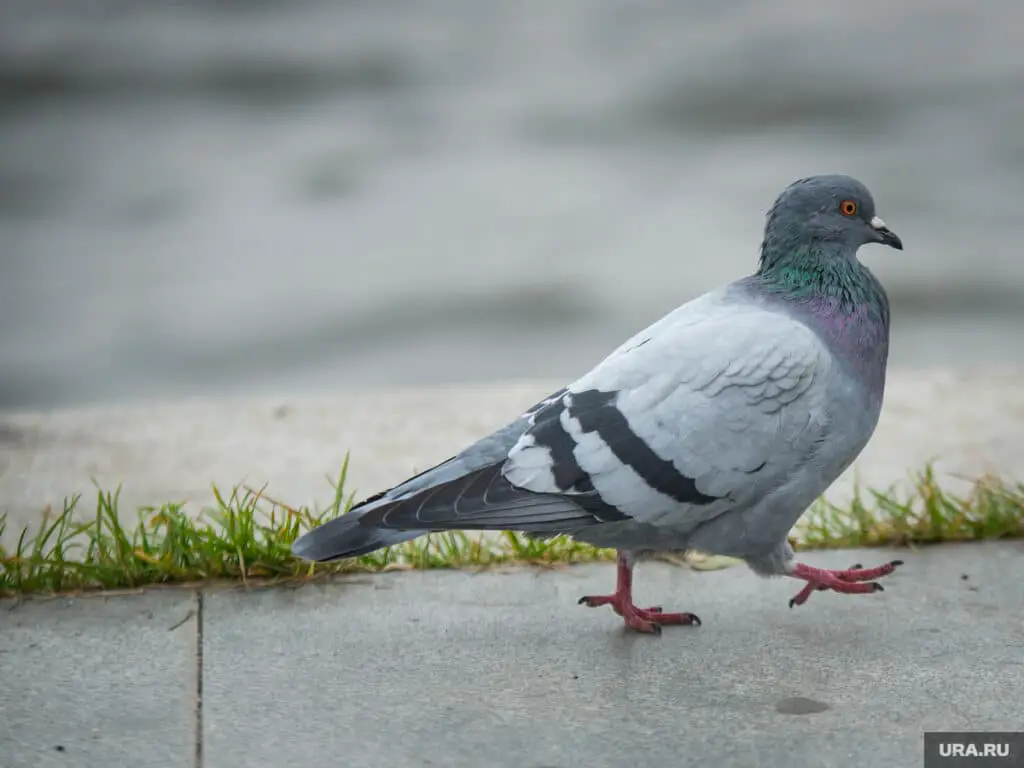
Conclusion
The belief that pigeons bring good luck is a fascinating and enduring aspect of human culture. These unassuming birds have woven their way into the fabric of our lives through centuries, connecting with us on various levels, from spiritual symbolism to practical utility. Whether through their historical associations with divine messages or their vital roles in times of conflict, pigeons have garnered a unique status as carriers of blessings and positive omens. Pigeons continue to be a source of fascination in our modern, urbanized world.
Their peaceful presence in our cities reminds us of the tranquility and harmony they represent. Despite the diversity of beliefs and cultures around the world, the idea that pigeons are bearers of good luck remains a unifying thread, a testament to the enduring power of symbolism and the enduring human need for hope and positivity. As pigeons gracefully navigate our streets and parks, they serve as a reminder that sometimes, a simple bird can carry with it a world of meaning, reminding us to appreciate the small, often overlooked, elements of our lives that bring us joy, hope, and the promise of good fortune.
Whether through ancient legends or modern customs, pigeons have earned their place as ambassadors of luck, reminding us to embrace the blessings that come our way, however they may appear. In a world filled with complex superstitions and symbols, the simplicity of pigeons as bearers of good luck is a charming and enduring phenomenon. Their role as messengers, both in mythology and in real-life wartime situations, adds a layer of depth to their symbolism. Pigeons symbolize not just good luck but also resilience, loyalty, and the ability to navigate challenges, characteristics that resonate with the human spirit.

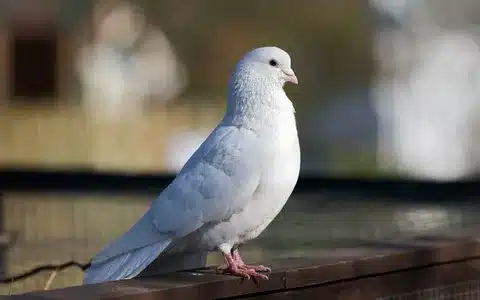
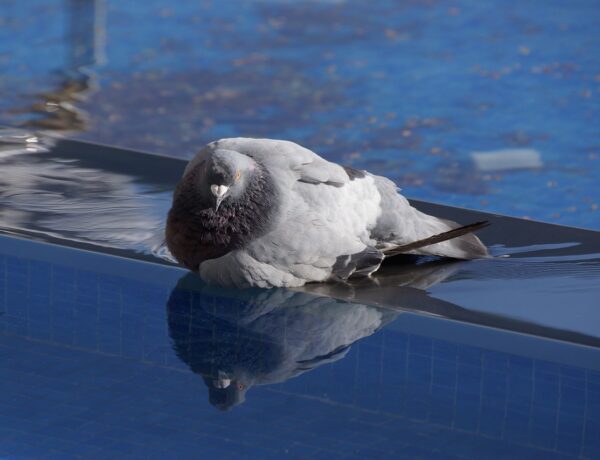
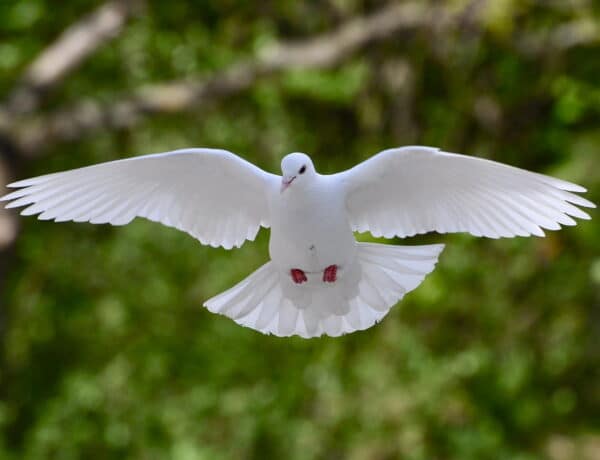

No Comments